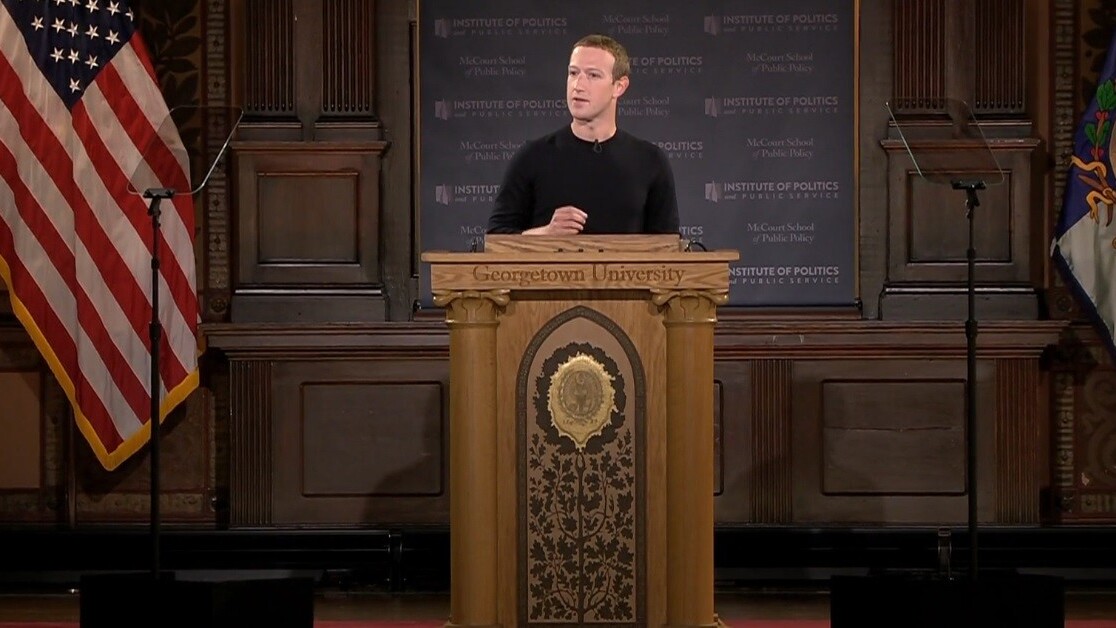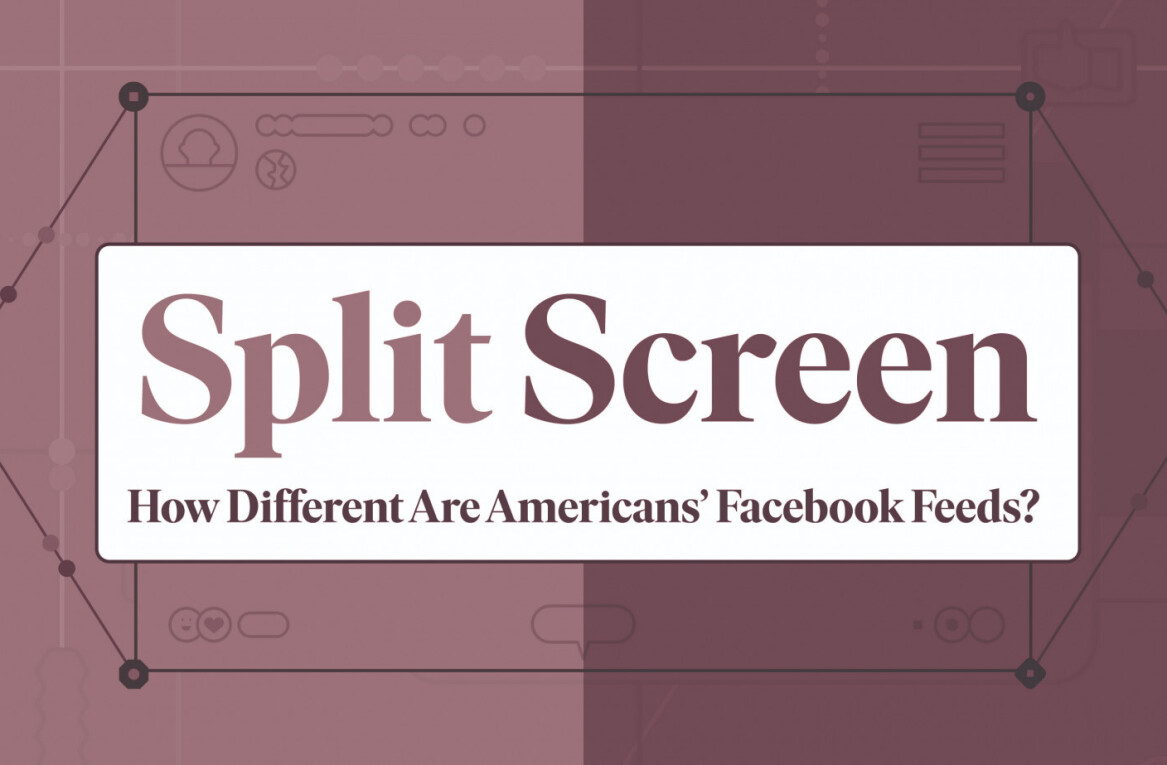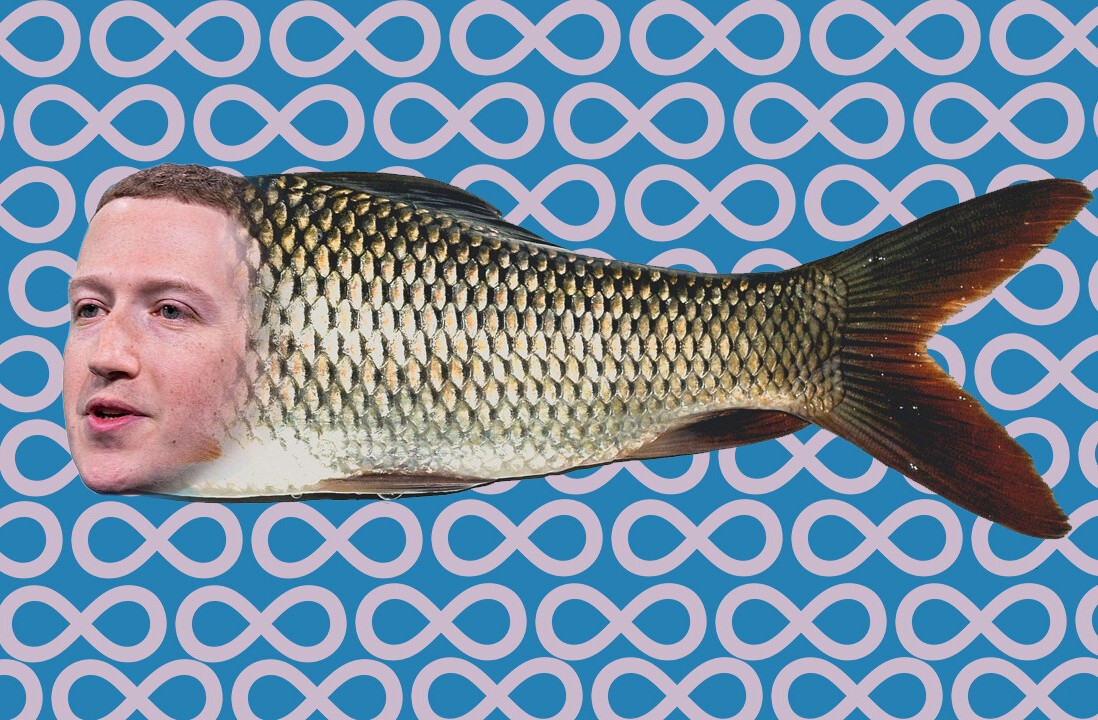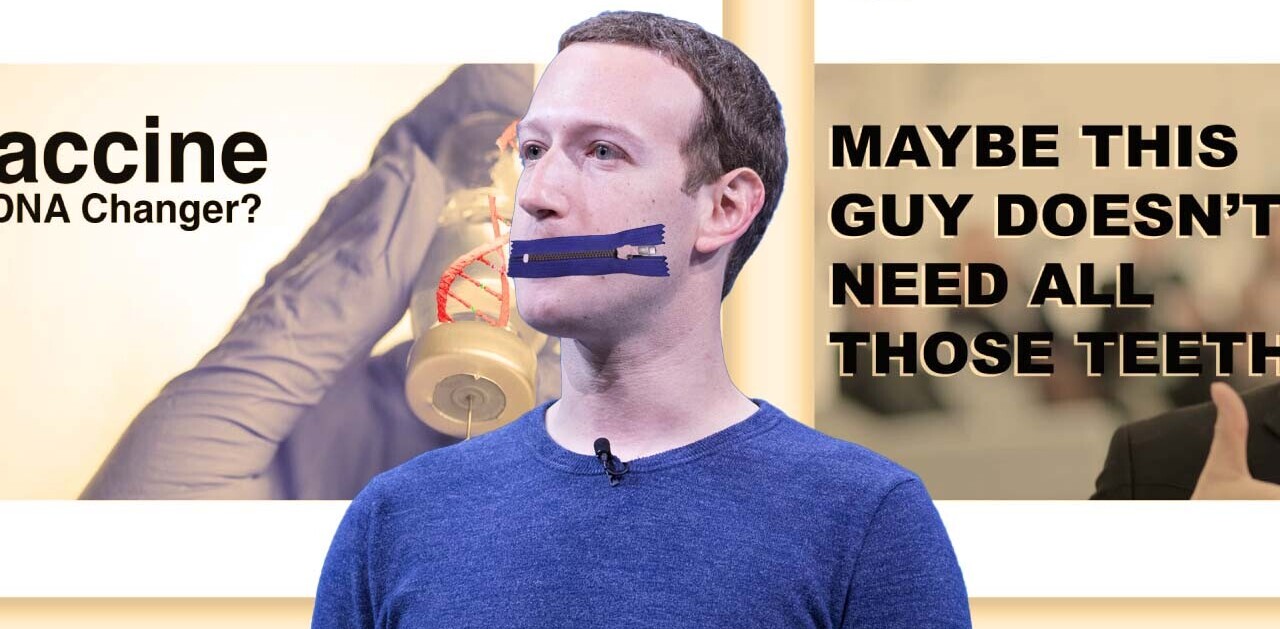
Facebook CEO Mark Zuckerberg gave a talk today at Georgetown University, covering his views on free expression. During the speech, he repeated that Facebook stood for free expression, made vague noises towards its improvement, and pointed out that — as far as values go — it’s at least standing against the likes of China.
There was a theme throughout the speech, linking Facebook communication with major civil rights movements of ages past. Zuckerberg name-dropped the likes of Martin Luther King Jr and Frederick Douglass, and went so far as to call it a “fifth estate alongside other power structures in our society.”
Zuckerberg spent the first part of his speech touting the good Facebook had done, and how it’s “decentralized power by putting it in people’s hands.” Most of his speech attempted to cast Facebook as a bastion of free expression battered by outside forces and critics, and I leave it to my readers to assess how true they think that is.
Facebook, according to Zuckerberg, needs to have more openness when it comes to speech, not less. One of his more notable quotes was, “I don’t think most people want to live in a world where you can only post things tech companies judge to be 100 percent true.” He also said the company doesn’t fact-check political ads for this reason, as it isn’t on Facebook to police politicians.
"I believe that, when it is not absolutely clear what we should do, we should err on the side of greater expression." @facebook CEO Mark Zuckerberg #ZuckerbergatGU
— McCourt School (@McCourtSchool) October 17, 2019
Despite that, he acknowledged that such openness is dangerous, as it leaves users vulnerable to manipulation. He claimed that the problem wasn’t the speech, but the inauthenticity of the speakers, and that the company was focused on purging bot accounts as soon as they’re created. He didn’t allude to what the company would do about the real people creating these accounts, other than play an ever-escalating game of Whac-a-mole with the bots.
Zuckerberg also admitted he’d considered banning all political ads from Facebook, saying the controversy they invited wasn’t worth what little revenue they generated. But he added that this only swung the power in favor of incumbents, as it robbed underdog candidates of a major platform.
He also alluded to Facebook’s intention to create an independent review board to which users could appeal Facebook’s decisions — a sort-of social media Supreme Court. Their decisions on whether to overturn Facebook’s own rulings would be absolute. It sounds like a nice idea, provided the right people are on this board. This was only actionable thing Zuckerberg mentioned during the whole speech, and it’s an idea Facebook has floated before.
Zuckerberg says he’s creating an “independent” advisory board he will appoint to oversee his monopoly. It’ll be very independent. He’ll make sure of it. And definitely way better than Congress or the Fed gov’t stepping in and regulating them. Definitely. He promises.
— john r stanton (@dcbigjohn) October 17, 2019
The speech seemed to take a real turn when Zuckerberg said that one of the problems is that countries with limits on free expressions try to impose those limits on other countries. He specifically namedropped China, a country with which Facebook has often had friction.
He identified the Chinese vision for the internet as a major threat to freedom of expression, saying, it’s “building its own internet focused on very different values.” Most major platforms have been built on American values (and money). He pointed out that, nowadays, six of the top ten internet platform are Chinese, and directly called out TikTok for censoring mentions of the Hong Kong protests. “Is that the internet we want?”
This is the only time during the event Zuckerberg actually seemed to be passionate about what he was saying. Everything else he mentioned on stage was Macbeth’s tale told by an idiot: “Full of sound and fury, signifying nothing.” But when he spoke about Facebook as some kind of oak standing sentinel against the encroaching, anti-free expression values of China, you could tell he actually felt what he was saying.
I actually appreciate it when Mark Zuckerberg stands by free speech and not trade away freedom for the Chinese market
This is very important to me because I am a Hong Konger and a lot of us read and discuss news through Facebook#FightForFreedomStandWithHongKong
— Jane Manchun Wong (@wongmjane) October 17, 2019
He’s not entirely wrong to criticize attempts by the Chinese government to infringe on the free expression of people in other countries. For an example of how this is happening in real time, take a look at the NBA Twitter scandal or the Hearthstone kerfuffle. But just because Facebook isn’t one thing doesn’t mean it is something else by default — in this case an open platform that boosts and protects free expression. The simple act of “not being in bed with the Chinese” does not address any of the legitimate complaints against the kind of speech Facebook has allowed to proliferate on its platform.
It’s worth noting that, despite the event ostensibly being about freedom to speak one’s mind, the students weren’t actually permitted to stand up and ask Zuck questions after the show. They submitted questions before the event, which were handpicked and asked by a moderator during the Q&A after the event, said NYT reporter Kara Swisher, who was present. Zuck also wrapped up on a decided saccharine note, saying, “I believe in giving people a voice because, at the end of the day, I believe in people.” It’s a good summing up of the whole speech — a pleasant sentiment that doesn’t really mean anything when you think about it.
Get the TNW newsletter
Get the most important tech news in your inbox each week.




